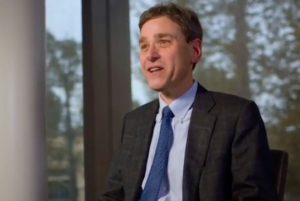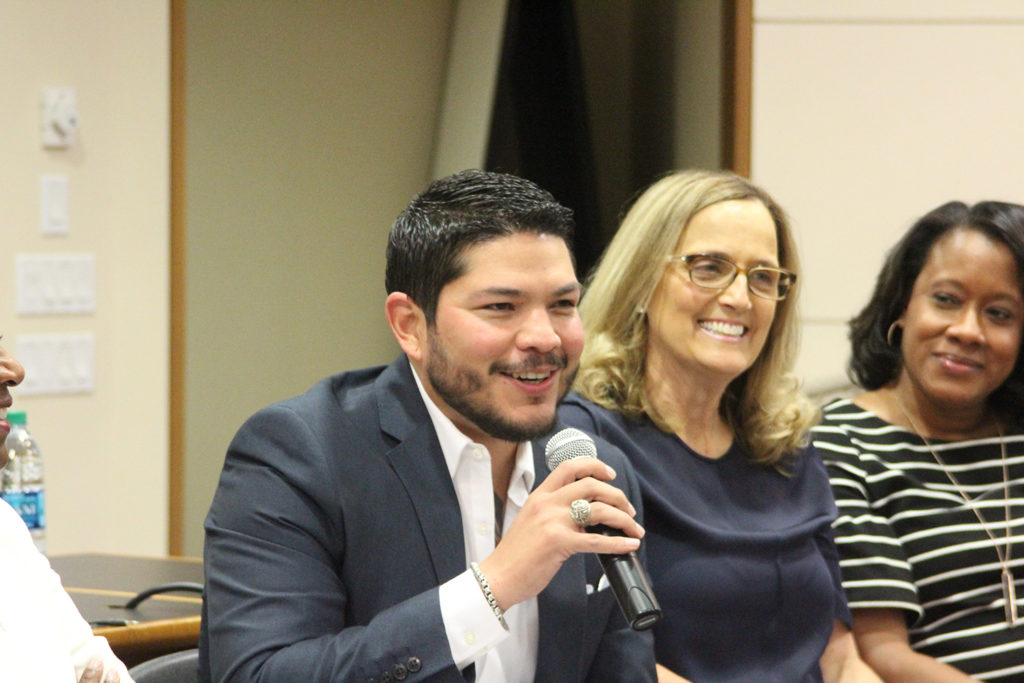Two Recent SLS Panels Discuss the Power of the Prosecutor in the 21st Century
The Stanford Criminal Justice Center hosted two packed public events this past week at the law school exploring the power of prosecutors as increased attention is being paid to the role they play in the American justice system.
The first panel, “Repairing Prosecution: Avoiding and Correcting Wrongful Convictions,” held on Thursday, October 26th, addressed the reasons why prosecutors’ power needs to be checked, highlighting the case of Noura Jackson, a Memphis teenager who spent 11 years in prison for a false murder conviction. Joined by New York Times Magazine staff writer Emily Bazelon, Special Fields Bureau Chief of the Dallas County Conviction Integrity Unit Cynthia R. Garza, and Alameda County Public Defender Brendon D. Woods, Professor David Sklansky moderated a conversation to seek out ways in which prosecutors can be held accountable for their decisions. This event was co-sponsored by the Stanford Center on the Legal Profession.

The second panel, “Re-Imagining the 21st Century Prosecutor,” also moderated by Professor Sklansky, took place on Monday, October 30th, and was co-sponsored by Fair and Just Prosecution. District attorneys Diana Becton of Contra Costa County, California, Sherry Boston of Dekalb County, Georgia, Mark Gonzalez of Nueces County, Texas, and Tori Verber Salazar of San Joaquin County, California joined Executive Director of Fair and Just Prosecution Miriam Aroni Krinsky to discuss the importance of efficiency, transparency, and prioritizing public safety above all else.
A major sentiment emphasized during both events was that a prosecutor should not focus on winning or losing. “Prosecutors have a lot of power. So you always have to remember what your ethical obligations are,” said Garza on October 26. According to Salazar, who spoke at the second panel, their mission should also include working with the entire community. “It’s not tough on crime. It’s smart on crime.”

However, although this immense power should be used ethically and responsibly, it also allows countless opportunities for prosecutorial misconduct. Woods explained, “The problem with misconduct… is it’s so hard to catch it, so hard to see it, so hard to predict it, so hard to know when it occurs.”
During the second panel, newly elected, former criminal defense attorney Gonzalez also mirrored this idea when speaking of bringing about change within the office. He said, “[Prosecutors] want to win at all costs. We need to change that. If you hide evidence, that won’t be tolerated. I would honestly [prefer to] have a young prosecutor fresh out of law school, so we can show them our vision, over someone who’s been a prosecutor for 30 years but is biased against minorities because maybe that’s what was taught to them.”
“The people coming through your office, they’re not criminals. They’re not bad people. They’ve been through unfortunate circumstances,” Boston said in the second panel, reflecting the consensus of both panels that ultimately the goals of prosecutors should be to avoid wrongful convictions and promote alternatives to incarceration, and utilize smart justice. Woods stresses that above all else, “we have to change the culture. We have to reward the prosecutors who are doing the right thing.”
